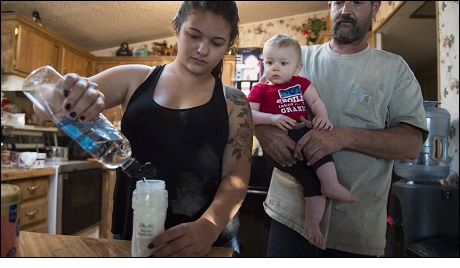
|
|

|
|
| April 25, 2024 |
|
360,000 Californians have unsafe drinking water 
SACRAMENTO – (INT) - An estimated 360,000 Californians are served by water systems with unsafe drinking water, according to a McClatchy analysis of data compiled by the State Water Resources Control Board. In many communities, people drink, shower, cook and wash dishes with water containing excessive amounts of pollutants, including arsenic, nitrates and uranium.
The state's water problem, however, is far more pervasive than that number indicates. At least 6 million Californians are served by water providers that have been in violation of state standards at some point since 2012, according to McClatchy's analysis. In some areas, contaminated water is such a common occurrence, residents have almost come to expect it. California has 3,015 independent water systems. As of May, 269 of these suppliers were out of compliance with state drinking water standards. Of those 269 water systems, 141 are found in five counties of the San Joaquin Valley: Stanislaus, Madera, Fresno, Tulare and Kern. However, 38 of California's 58 counties have at least one water supplier in violation of state water standards. In the Inland Empire, San Bernardino County has 14 suppliers out of compliance that serve 94,650 people. Riverside County has six suppliers providing water to 1,430 people. Now, after years of half solutions, the state is considering its most comprehensive actions to date. Gov. Jerry Brown has asked the Legislature to enact a statewide tax on drinking water to fix wells and treatment systems in distressed communities. Residents and businesses would pay a tax on their monthly water bills, while agriculture would contribute through taxes on fertilizer purchases and fees paid by dairy farmers and feedlot operators. For the average Californian, the tax would mean paying an additional $11.40 per year. A two-thirds majority is required for passage of the tax, and a powerful consortium of urban water agencies is trying to defeat the bill, arguing they should not have to pay for what is largely a rural problem. The bill is due to be voted on this summer. Whether or not the Legislature acts, voters might step in. A proposition, which has qualified for the November ballot, would set aside $500 million to address the problem. Story Date: June 20, 2018
|